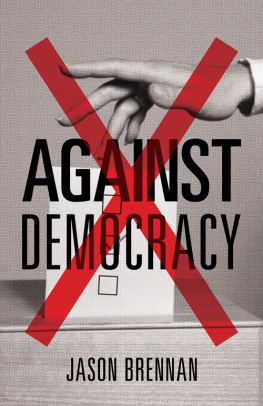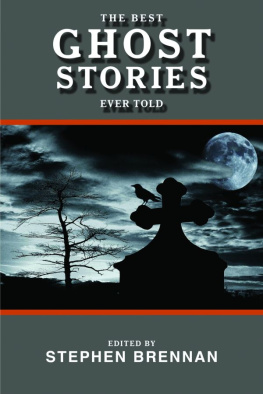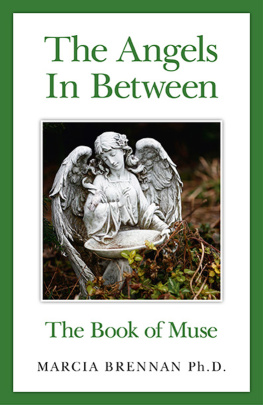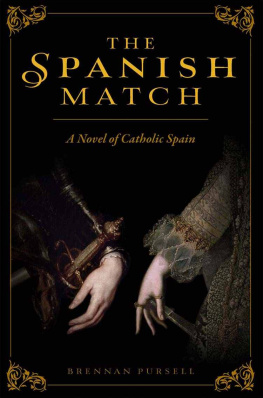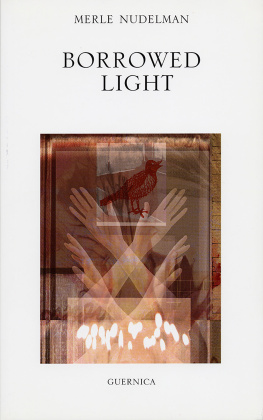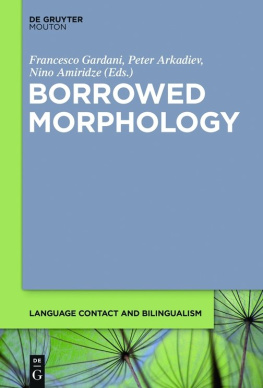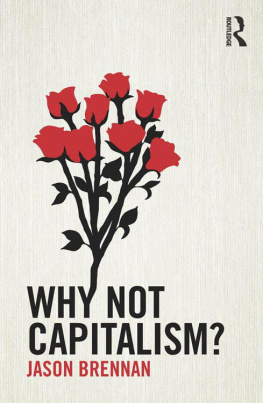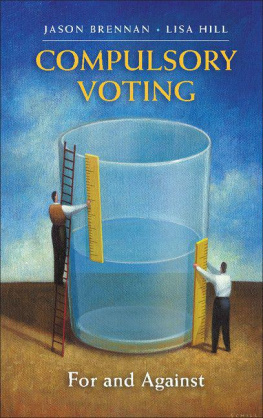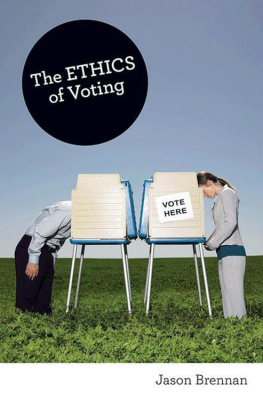Brennan - Borrowed Light
Here you can read online Brennan - Borrowed Light full text of the book (entire story) in english for free. Download pdf and epub, get meaning, cover and reviews about this ebook. year: 2014, publisher: Stanford University Press, genre: Romance novel. Description of the work, (preface) as well as reviews are available. Best literature library LitArk.com created for fans of good reading and offers a wide selection of genres:
Romance novel
Science fiction
Adventure
Detective
Science
History
Home and family
Prose
Art
Politics
Computer
Non-fiction
Religion
Business
Children
Humor
Choose a favorite category and find really read worthwhile books. Enjoy immersion in the world of imagination, feel the emotions of the characters or learn something new for yourself, make an fascinating discovery.

- Book:Borrowed Light
- Author:
- Publisher:Stanford University Press
- Genre:
- Year:2014
- Rating:3 / 5
- Favourites:Add to favourites
- Your mark:
- 60
- 1
- 2
- 3
- 4
- 5
Borrowed Light: summary, description and annotation
We offer to read an annotation, description, summary or preface (depends on what the author of the book "Borrowed Light" wrote himself). If you haven't found the necessary information about the book — write in the comments, we will try to find it.
Borrowed Light — read online for free the complete book (whole text) full work
Below is the text of the book, divided by pages. System saving the place of the last page read, allows you to conveniently read the book "Borrowed Light" online for free, without having to search again every time where you left off. Put a bookmark, and you can go to the page where you finished reading at any time.
Font size:
Interval:
Bookmark:
BORROWED LIGHT
VOLUME 1
Vico, Hegel, and the Colonies
Timothy Brennan
STANFORD UNIVERSITY PRESS
STANFORD, CALIFORNIA
Stanford University Press
Stanford, California
2014 by the Board of Trustees of the Leland Stanford Junior University.
All rights reserved.
No part of this book may be reproduced or transmitted in any form or by any means, electronic or mechanical, including photocopying and recording, or in any information storage or retrieval system without the prior written permission of Stanford University Press.
Printed in the United States of America on acid-free, archival-quality paper
Library of Congress Cataloging-in-Publication Data
Brennan, Timothy, 1953-author.
Borrowed light : Vico, Hegel, and the colonies / Timothy Brennan.
pages cm
Includes bibliographical references and index.
ISBN 978-0-8047-8832-8 (cloth : alk. paper)
ISBN 978-0-8047-9054-3 (pbk. : alk. paper)
1. ColoniesPhilosophy. 2. ImperialismPhilosophy. 3. Philosophy, Modern. 4. Vico, Giambattista, 1668-1744Influence. 5. Hegel, Georg Wilhelm Friedrich, 1770-1831Influence. I. Title.
JV51.B74 2014
325'.301dc23
2013047796
ISBN 978-0-8047-9058-1 (electronic)
Typeset by Bruce Lundquist in 10/14 Minion
For Keya
In those days, the communists were, I tell you this in all truth, the only human ones.
Patrick Chamoiseau
CONTENTS
ACKNOWLEDGMENTS
For the many days and nights spent trying out ideas, I would like to thank those friends whose opinions I sought, and from whom I learned so much. They aided me in ways material and intellectualto the late Neil Smith, whose rumpled confidence and empathy were only matched by his demotic style; to Michal Kobialka, a constant intellectual resource and sensitive spirit with a different reading list; to Silvia Lopez, for her insights into Latin American sources and good taste; to Tim Heitman, for a nonacademic perspective and musical accompaniment; to Chris Chiappari, for his humanist pessimism of the intellect; to Marco Katz, for his extravagant generosity, his bucking up, and his view from the street; to Deb Cowan, for pushing back on the Foucault question and for showing me the possibilities of the politics of the demimonde; to Neil Larsen, for his implicit demand to up the ante; to Crystal Bartolovich, for her moral support in Ithaca and for teaching me the virtues of immersing oneself in the early modern period; to Ken Calhoon, for his style and aesthetic exactness; to Bob Hullot-Kentor, for the encounters in New York, and for his lamenting polemics in the Brooklyn Rail; and to Susan Buck-Morss for her restless integrity and inventiveness, and her unfailing personal warmth. My greatest debt is to Keya Ganguly, the most penetrating and principled mind I know. She is behind every line, and I dedicate every one to her hoping some of them measure up.
A special thanks to Neil Lazarus, for his friendship, and for being involved with the arguments of this book at every stage as we swam upstream; to Priya Gopal, for her unwavering vernacular spirit; to Rashmi Varma and Subir Sinha, for their solidarity and kindness from afar; and to Benita Parry, for being a daily confidant, and for the million conversations in Marton, where my thinking finds a home. I learned from two younger scholars whom I first met as students and with whom I corresponded. Their work on philology and Marxism complemented my thinking, so let me thank Eric Owens and Stefano Selenu for their insights. To irregular correspondents who sought me out because they shared some of the same passions and are themselves pursuing projects along similar lines: Matthew Abraham, Asher Ghaffar, Marcus Green, Jamil Kader, Aaron Kamugisha, Francesco Rocchetti, Francescomaria Tedesco, and Daniel Vukovic.
I would like to thank those who were kind enough to invite me to their institutions to present some of the arguments of these chapters: Silvia Albertazzi, Antonis Balasopoulos, Akeel Bilgrami, Rowan Boyson, He Chengzhou, Simon During, Ben Etherington and Jarad Zimbler, Walter Goebbel, Jens Gurr, Benjamin Hagen and Michael Becker, Ulla Haselstein, Chen Jing, Michal Kobialka, Rdiger Kunow, Jairo Moreno, Wang Ning, Mariam Said, Tapati Thakurta and Rosinka Chaudhuri, Terri Tomsky and Eddy Kent, Antonio Vazquez-Arroyo, and Ban Wang.
It would be difficult for me to express how thankful I am to Amanda Anderson, who invited me to lead a seminar at the Cornell School for Criticism and Theory in 2010. Much of my thinking about the book over the last decade took final shape in that setting. My students in that seminar worked through its earlier forms with me: thanks, then, to Raquel Anido, Maureen Curtin, Rachel Feder, Anna Fisher, Roxana Galusca, Andrs Guzman, Saffron Hall, Colin Loughran, Ani Maitra, Seth Perlow, Nanna Thylstrup, Heather Treseler, Daniel Walker, and Laura Fan Xie; but let me particularly express my thanks to certain members of that cohort: Sayan Bhattacharyya, Eric Brandom, Robert Day, Christian Gerzso, Antonio Gomez, Stephan Hammel, Marco Katz, Salvador Mercado, Geordie Miller, Eric Owens, and Terri Tomsky. Thanks also to those from the seminar who later took part in panels at the American Comparative Literature Association conference on Hegels relevance to anticolonial thought, above all to Jerilyn Sambrooke, who co-organized the panels with me, and to Nicholas Brown for participating. And to my students in Germany, where I spent a half year navigating officialdom and the archives; they taught me to see the challenges and contradictions of living in todays Europe: Jan an Haack, Milo Kanefaty, Philipp Kneiss, Frederike Offizier, Yami Quiroga, and Steffi Siewert.
Thanks to my colleagues in the Dialectics and Society Workshop at the University of Minnesota, above all its main organizer, Bali Sahota. Over a four-year period a group of us explored dialectical traditions with outside help from Gopal Balakrishnan, Susan Buck-Morss, Chris Connery, Raymond Geuss, Robert Hullot-Kentor, Neil Larsen, Max Pensky, Moishe Postone, and Shierry Weber Nicholson. And to my graduate students with whom I have worked through so many of these ideas in seminars, office encounters, and e-mail exchanges: Sunyoung Ang, Koel Bannerjee, Matthew Boynton, Madhurima Chakraborty, Anil Chandiramani, Dan Dooghan, Esther Edelman, Nick Hengen, Hyeryung Hwang, Jayashree Kamble, Jennifer Kang, Na-Rae Kim, Dennis Mischke, Barbara Pierre-Louis, Djordje Popovic, Nick Robinette, Gabe Shapiro, Lindsey Simms, Saloua ben Zahra, and Marla Zubel.
My work has been supported by grants from the Deutsche Forschungsgemeinschaft, the National Endowment of the Humanities summer stipends program, and the University of Minnesota Grant-in-Aid and Single Semester Leave programs. These allowed me to hire research assistants who are already well on their way in their own careers; I am very grateful for their labors and precision. These include Cecily Marcus, Gauti Sigthorsson, Thomas Haakenson, Jan an Haack, and, more recently and especially, Anil Chandiramani. A part of appeared in The Oxford Handbook to Postcolonial Studies, ed. Graham G. Huggan (Oxford University Press, 2013). Thanks to Saranindranath Tagore for his help in obtaining permission to use the cover image.
ABBREVIATIONS
Giambattista Vico
| AGV | The Autobiography of Giambattista Vico, ed. and trans. Max Harold Fisch and Thomas Goddard Bergin (Ithaca, NY: Cornell UP, 1944). |
| ARh | The Art of Rhetoric (Institutiones Oratoriae, 171141), ed. and trans. Giorgio A. Pinton and Arthur W. Shippee (Amsterdam: Rodopi, 1996). |
| FNS | The First New Science, ed. and trans. Leon Pompa (Cambridge: Cambridge UP, 2002). |
Font size:
Interval:
Bookmark:
Similar books «Borrowed Light»
Look at similar books to Borrowed Light. We have selected literature similar in name and meaning in the hope of providing readers with more options to find new, interesting, not yet read works.
Discussion, reviews of the book Borrowed Light and just readers' own opinions. Leave your comments, write what you think about the work, its meaning or the main characters. Specify what exactly you liked and what you didn't like, and why you think so.



